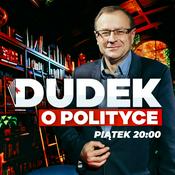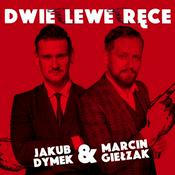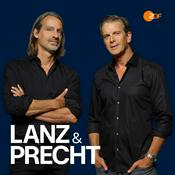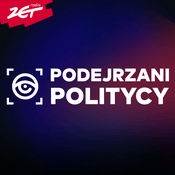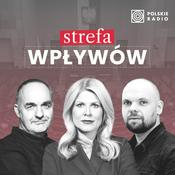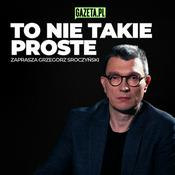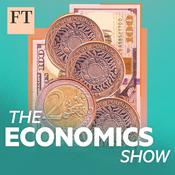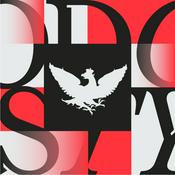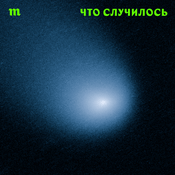182 odcinków

Pavel Durov’s Russian biographer explains the tech-bro feudalism that drives Telegram
16.12.2025 | 35 min.
Earlier this year, Telegram raised $1.7 billion from convertible bonds — funds earmarked to pay off debt due next year, leaving about $745 million in surplus. In December 2024, in its first profitable year, the company reportedly earned a profit of $540 million on revenue of $1.4 billion. This year, Telegram’s profits are expected to top $700 million on $2 billion in revenue. The social network reportedly has more than 1 billion monthly active users, including 15 million paid subscribers — a figure that has doubled over the past year. In November 2025, the French authorities fully lifted their travel ban on billionaire Pavel Durov, Telegram’s founder and CEO, who was arrested in Paris in August 2024 on charges alleging complicity in crimes facilitated through the platform. In the past two years, Durov has granted hours-long interviews to podcaster and YouTuber Lex Fridman and American journalist Tucker Carlson. Durov also spent two days talking to Russian journalist Nikolay Kononov, who recently published a new book that updates his “14-year investigation into Pavel Durov’s strategy and mindset, and the epic of Telegram.” The book, The Populist: The Untold Story of Pavel Durov and Telegram, is now available in English. Kononov spoke with The Naked Pravda about Durov’s conservative political views, his uncompromising managerial style, and Telegram’s efforts to navigate regulatory risks while expanding its global user base. Timestamps for this episode: (2:22) Tech feudalism vs. late capitalism(12:28) Telegram moderation politics(16:15) Telegram’s cryptocurrency journey(22:13) The future of Telegram and Pavel Durov’s vision(30:38) Durov’s mindset in 2025Как поддержать нашу редакцию — даже если вы в России и вам очень страшно

Simon Shuster on the fall of Andriy Yermak
09.12.2025 | 35 min.
Ukrainian President Volodymyr Zelensky has been without a chief of staff for more than a week. His former right-hand man, Andriy Yermak, resigned on November 28, hours after anti-corruption agents raided his apartment in Kyiv. The investigators were looking into a $100-million kickback scheme in Ukraine’s energy sector that has already cost several high-level officials their posts. The timing of the biggest political scandal of Zelensky’s presidency couldn’t have been worse: news of the scheme broke just as the Trump administration pushed ahead with another round of talks to end Russia’s war against Ukraine. Among his many other roles, Yermak was Ukraine’s lead peace negotiator. To put this enormous shake-up into context, Meduza senior news editor Sam Breazeale spoke to journalist Simon Shuster. A Ukraine expert and staff writer at The Atlantic, Shuster interviewed Yermak the day before his resignation. He also enjoyed extensive access to Zelensky and his circle while writing his 2024 biography The Showman: Inside the Invasion That Shook the World and Made a Leader of Volodymyr Zelensky. Originally published in English, The Showman is now also available in Russian from Meduza’s own publishing house. Timestamps for this episode: (1:39) The Zelensky administration without Yermak(5:40) The role of martial law(9:09) Negotiations and peace talks(22:57) Zelensky’s transformation and future(29:59) The governance challenges of wartime corruptionКак поддержать нашу редакцию — даже если вы в России и вам очень страшно

Andrei Sannikov on Lukashenko’s latest gambit — and why the West keeps taking the bait
05.12.2025 | 24 min.
Belarusian pro-democracy activist Andrei Sannikov recently joined Beet editor Eilish Hart for a conversation recorded on the sidelines of the Halifax International Security Forum. The interview focused on the Trump administration’s growing engagement with Belarusian President Alexander Lukashenko, including efforts to secure the release of more than a thousand political prisoners. In these negotiations, Lukashenko has leveraged a tactic honed by his regime over decades of authoritarian rule. Sannikov knows the consequences of that system firsthand. He ran against Lukashenko in the 2010 presidential election, was badly beaten by riot police, and served time in prison after protests erupted over the rigged vote. From exile, he has watched Minsk turn prisoner releases into bargaining chips, trading a few high-profile dissidents for sanctions relief and then refilling the prisons with new detainees. Against the backdrop of Trump’s second term and renewed U.S.–Belarus engagement, Sannikov warned that Washington risks falling into a familiar trap. While the White House celebrates diplomatic “breakthroughs,” Lukashenko continues to imprison more Belarusians than he frees, raising the unsettling question of whether outreach to Minsk delivers any real progress or merely legitimizes repression. Timestamps for this episode: (3:06) Trump’s second term and Belarus relations(9:48) Lukashenko’s role in the Ukraine war(11:17) The geopolitical impact of Belarus breaking isolation(15:13) The future of Belarus: Neutrality vs. alliances(21:52) The importance of political prisoners and democratic resistanceКак поддержать нашу редакцию — даже если вы в России и вам очень страшно

Russia’s elites once dreaded war. Now, they fear peace.
22.11.2025 | 31 min.
In his 2024 state-of-the-nation address, Vladimir Putin declared that the word “elite” had lost much of its credibility. Russia’s “real elite,” he said, are those who serve their country: “the workers and warriors, reliable, trustworthy people who have proven their loyalty to Russia through their deeds.” It’s safe to assume that these words sent a chill through Russia’s elite circles, where top officials, business leaders, and military figures have been jockeying to hold on to their positions for nearly four years of wartime. With Putin laser-focused on winning the war against Ukraine, anyone who impedes that goal is at risk of finding themselves on the chopping block. Long-serving officials have fallen out of favor, while ultra-patriotic hardliners are rising to the top, leaving Putin surrounded by sycophants. But concentrating so much power in one 73-year-old man poses some obvious risks for Russia’s political system. For more insight into how Putin’s war effort has changed the rules for Russia’s “old elites” and made them fear the prospect of peace, The Naked Pravda spoke to Farida Rustamova, an independent journalist who covers politics and power in Russia and writes the Substack newsletter Faridaily. Time stamps for this episode: (2:42 The Shift in Russian Political Dynamics04:54 Meduza’s Daily Newsletter Plug05:41 Medvedev’s Transformation and Elite Adaptation07:11 Fear and Repression Among Russian Officials11:59 High-Level Shakeups and Political Loyalty19:50 Concerns Over War’s End and Future Chaos25:32 Skepticism About Peace Talks and Putin’s Image27:56 Putin’s Concentration of Power and Future of PutinismКак поддержать нашу редакцию — даже если вы в России и вам очень страшно

Elena Kostyuchenko explains why E.U. multiple-entry visas were so crucial for Russian dissidents and journalists
14.11.2025 | 32 min.
More than 500,000 Russians were granted visas to the European Union’s Schengen zone in 2024 — nearly half of which allow for multiple entry over many years. The visitor numbers are down by 90 percent compared with pre-pandemic 2019, but half a million people still isn’t nothing. And it’s about to seem astronomical, following a recent decision by the European Union to introduce a ban on multi-entry visas to the Schengen zone for Russian citizens. Many have welcomed the E.U.’s new policy as long overdue, justifying the restrictions as a commonsense security measure and a morally righteous punishment for the citizens of a state terrorizing the continent and making war in Ukraine. That has not been the response from most Russian activists and journalists, however. For these people, Europe’s new multi-entry visa police will shatter the workflows and evacuation plans that had made it possible to continue limited forms of independent reporting and activism inside Russia. To learn more about these repercussions, The Naked Pravda spoke to journalist and activist Elena Kostyuchenko, author of the 2023 book I Love Russia: Reporting From a Lost Country. In a November 10 social media post, Kostyuchenko laid out why her colleagues are “panicking” about the new E.U. visa policy. She joined Meduza’s podcast to break it down further. Timestamps for this episode: (4:18) Challenges faced by Russian activists investigating war crimes against Ukraine(9:10) The European Union as a safe haven(19:14) Middle-class Russians and visa policies(25:16) Security concerns about the exiled opposition and espionage in EuropeКак поддержать нашу редакцию — даже если вы в России и вам очень страшно
Więcej Wiadomości podcastów
Trendy w podcaście Wiadomości
O The Naked Pravda
Słuchaj The Naked Pravda, OSW - Ośrodek Studiów Wschodnich i wielu innych podcastów z całego świata dzięki aplikacji radio.pl
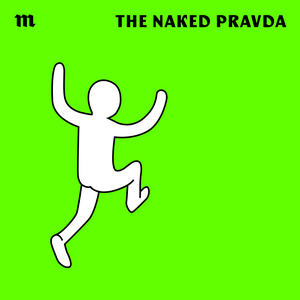
Uzyskaj bezpłatną aplikację radio.pl
- Stacje i podcasty do zakładek
- Strumieniuj przez Wi-Fi lub Bluetooth
- Obsługuje Carplay & Android Auto
- Jeszcze więcej funkcjonalności
Uzyskaj bezpłatną aplikację radio.pl
- Stacje i podcasty do zakładek
- Strumieniuj przez Wi-Fi lub Bluetooth
- Obsługuje Carplay & Android Auto
- Jeszcze więcej funkcjonalności


The Naked Pravda
pobierz aplikację,
zacznij słuchać.


